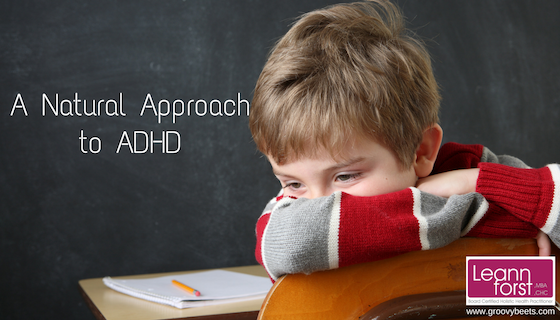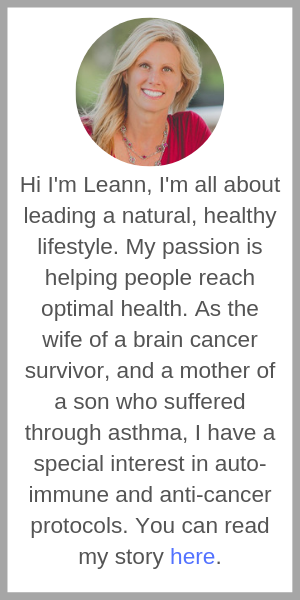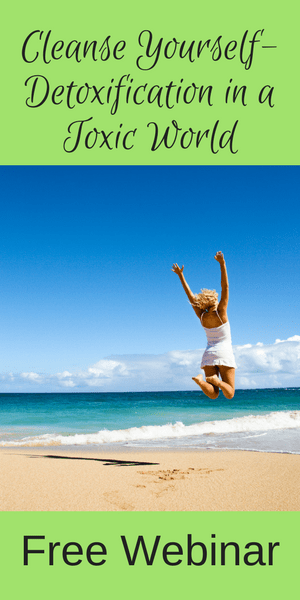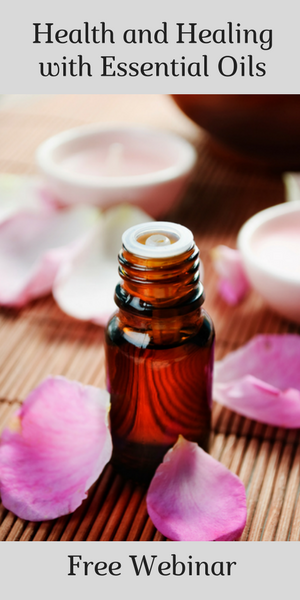Can Natural Alternatives Relieve ADHD Symptoms?
What is ADHD?
In the United States, 8 million adults and 6.4 million children (ages 4-17) have been diagnosed with Attention Deficit Hyperactivity Disorder (ADHD). ADHD is defined as a chronic condition where symptoms include attention difficulty, hyperactivity, and impulsiveness.
In order to obtain an ADHD diagnosis, a doctor will do an assessment with the help of parents, caregivers, teachers, and other school/sports professionals. There is no physical test or blood work. With the lack of medical testing, there is no definitive way to be sure someone has ADHD.
ADHD Medication
Many children who are diagnosed with ADHD take medication, such as Ritalin or Adderall.
The Drug Enforcement Administration has reported a 41% increase in ADHD prescriptions in the U.S. from 2007-2011. Many, even doctors, find these increases alarming. Dr. William Graf, a pediatric neurologist and professor at the Yale School of Medicine, says “Mild symptoms are being diagnosed so readily, which goes well beyond the disorder and beyond the zone of ambiguity to pure enhancement of children who are otherwise healthy.”
Ritalin is a methyphenidate, which is a central nervous system stimulant. Adderall is also a stimulant that is a combination of amphetamine and dextroamphetamine. If you research each of these substances – as well as others used to treat ADHD – you will find there many side effects, as well as concern of addiction. Ritalin and Adderall have been classified as Schedule II drugs, meaning they have a high potential for abuse.
Drugs like Ritalin are also abused when people mix it with alcohol. Since Ritalin is a stimulant and alcohol is a depressant, their negative side effects counteract each other. For instance, you would take a stimulant to offset the sedative effects of alcohol, helping you enjoy the buzz of alcohol without that tired feeling.
Sounds like a party? Actually, this can most likely cause you to consume more alcohol than normal and could lead to alcohol poisoning.
Side Effects of ADHD Medication
Short-term side effects of taking stimulant ADHD medication include:
- Headaches
- Increased heart rate
- Bladder pain
- Insomnia
- Chest pain
- Fever
- Painful urination
Long-term effects could include:
- Damage to the brain, especially blood vessels
- High blood pressure
- Heart disease
- Dizziness
- Slurred speech
- Liver & kidney damage
- Depression
- Slowing of growth in children
- Seizures
- Eyesight changes or blurred vision
- Psychological dependence
Ritalin is one of the most prescribed drugs in the U.S. This – along with the rise in prescription drug abuse – leads to the issue of tolerance. The more Ritalin someone takes, the more tolerant their body becomes. This can force them to seek stronger doses or stronger drugs.
Ritalin abuse is a problem because it’s stimulant effects can cause people to lose weight, stay awake, and get high; things that may seem enticing to young people.
A 1999 Berkeley study of 500 students over a 20 years, found that those who took Ritalin (and other drugs like it), had a greater likelihood of smoking cigarettes, and using cocaine and other stimulants later in life.
Nutrition and ADHD
I have dedicated my life to belief that the food we put in our bodies affects all aspects of our health. And that includes mental health.
A Harvard Health study found that “people that eat clean or whole diets high in vegetables, fruits, unprocessed grains, and lean meats are more likely to experience better emotional health.”
How does this affect children with ADHD? Well parents and students have reported a connection between the kinds of foods they eat, their behavior and ADHD symptoms. The Lancet published a study in which they concluded that kids on a whole food diet could experience a significant reduction in ADHD symptoms.
They studied 50 children on a “restricted elimination diet” consisting of foods with the least possible risk of allergic reaction and 50 children not on any diet. By the end, 78% of the children who completed the five-week restricted diet phase improved their behavior. While the behavior of those who were not on a special diet remained the same.
Healthy fats are highly important for brain health and reducing symptoms of ADHD. 60% of our brain is fat, so it makes sense that we NEED healthy fat to have optimal brain health. This is an area where many children and adults fall short. Focus on fats such as wild Alaskan salmon, nuts, nut butters, olives, coconut oil and avocado.
Food Sensitivities and ADHD
Dr. Lidy Pelsser, a psychologist at the ADHD Research Center, believes that 64% of children diagnosed with ADHD actually only have a hypersensitivity to food. Foods like sugar, gluten, dairy, food coloring and dye, nitrites, artificial sweeteners, and soy are ones to avoid for anyone seeking optimal brain function for themselves or their kids.
(Note: alcohol is sugar, so reducing or eliminating alcohol for adults is a necessary step to minimizing ADHD symptoms).
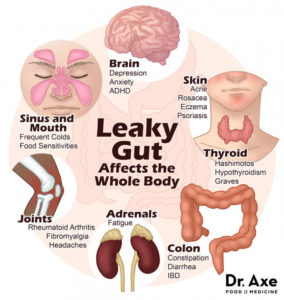 It has been concluded that the majority of brain diseases have one thing in common: inflammation. And one of the biggest food culprits of inflammation is gluten.
It has been concluded that the majority of brain diseases have one thing in common: inflammation. And one of the biggest food culprits of inflammation is gluten.
1 in 133 people in the U.S. are walking around with an undiagnosed gluten sensitivity. Gluten can trigger a gene to become reactive and disrupt healthy brain function.
The image to the right from Dr. Axe shows just how consuming gluten causes leaky gut, which leads to inflammation. And from there, we experience a whole host of health problems…see how this comes full circle?
With a Leaky Gut protocol, you can easily repair the issue, as well as cure and prevent many illnesses and conditions.
Also, there is research that ADHD could have a genetic component. Epigenetics is where a gene could be turned on or off due to diet, lifestyle and environment. ADHD could be a lot of different things and not actually ADHD, which is why it’s best to look at other options before choosing psychoactive drugs.
Nutrient Deficiencies and ADHD
Here are specific nutrient deficiencies that are linked to ADHD symptoms:
- Omega-3s – significant improvements in reading, spelling and behavior were all noted in a trial when students took Omega-3s. Plus it helps fight inflammation.
- Folate – low folate levels while pregnant has been linked to hyperactivity in children. People with the MTHFR gene are predisposed to folate deficiency and more likely to have ADHD.
- Vitamin B6 – Evidence suggests that high doses of vitamin B6 are as effective as Ritalin for ADHD, probably due to its ability to raise serotonin levels.
- Probiotics and Enzymes – for gut health, which helps brain health in the long run.
- Magnesium – a magnesium deficiency has been linked to poor function of the neurotransmitters that control emotion, social reactions, hyperactivity and attention.
- Zinc – zinc is a cofactor for dopamine synthesis, which affects mood and concentration. People with low zinc levels have less melatonin and serotonin production which affect information processing and behavior.
- Carnitine – due to its role in act acid metabolism, carnitine reduces hyperactivity and improves social behavior in people with ADHD. Many consider it a safe alternative to stimulant drugs
- Serine – administration of phosphatidylserine with omega 3 fatty acids improved ADHD symptoms significantly better than Omega 3 fatty acids alone; suggesting a synergistic effect.
- Glutamine – this is a precursor for the calming neurotransmitter GAMA that affects mood, focus and hyperactivity. Disruption of the glutamine-containing neurotransmission systems may cause ADHD.
- Choline – choline is a precursor to the neurotransmitter acetylcholine, which regulates memory focus and muscle control (hyperactivity).
- Antioxidants – oxidative imbalance is prevalent in ADHD patients and likely plays a causative role. Also a deficiency of glutathione is common in ADHD.
Essential Oils and ADHD
Essential oils are plant-based therapeutic compounds that can be used medicinally to combat many health threats, including ADHD. They are small enough molecularly to cross the blood-brain barrier which make them an excellent choice to support learning, focus and overall brain health. Here are the essential oils I recommend to anyone dealing with ADHD:
- Vetiver – this oil promotes deep concentration. A study by Dr. Terry Friedman showed vetiver oil was able to increase performance levels by 100%! The study also showed that vetiver, along with cedarwood, is very effective in improving focus and calming down children with ADHD.
- Cedarwood – shown to improve focus and clear thinking.
- Rosemary – has been linked to improved memory and brain function.
- Ylang Ylang/ Lavendar – creates a calmer mind and more relaxed state.
Essential Oil Protocol for ADHD
(NOTE: If pregnant or using for a child under that age of 6, PLEASE do not use essential oils without a consult from a licensed essential oil expert.
- Diffuse 2 drops of cedarwood and 3 drops of vetiver at homework time or in the office.
- Diffuse 5 drops of Ylang Ylang or Lavendar at bedtime for calmness and rest.
Leann’s Maximum Brain Function Blend: Use a roller bottle with 15 drops of vetiver, 10 drops of rosemary and 10 drops of cedarwood (then fill rest up with fractionated coconut oil) and swipe on the back of the neck or on the wrists when headed off to school or work.
Your Natural ADHD Protocol
- Avoid food additives, sugar and alcohol.
- Eat organic to avoid increasing the toxicity of your gut
- Eat clean, whole foods that help brain function, learning, and memory – don’t forget healthy fats!
- Get tested for nutrient deficiency (click here to read more). Test so you don’t guess which supplements you need.
- Get tested for food sensitivities (click here to read more) such as gluten that could affect brain function.
Want more information on reducing childhood – AND ADULT – disease, including ADHD? Click here for my 30 Day Family Health Makeover.
Disclosure: this post contains affiliate links.
 Login
Login